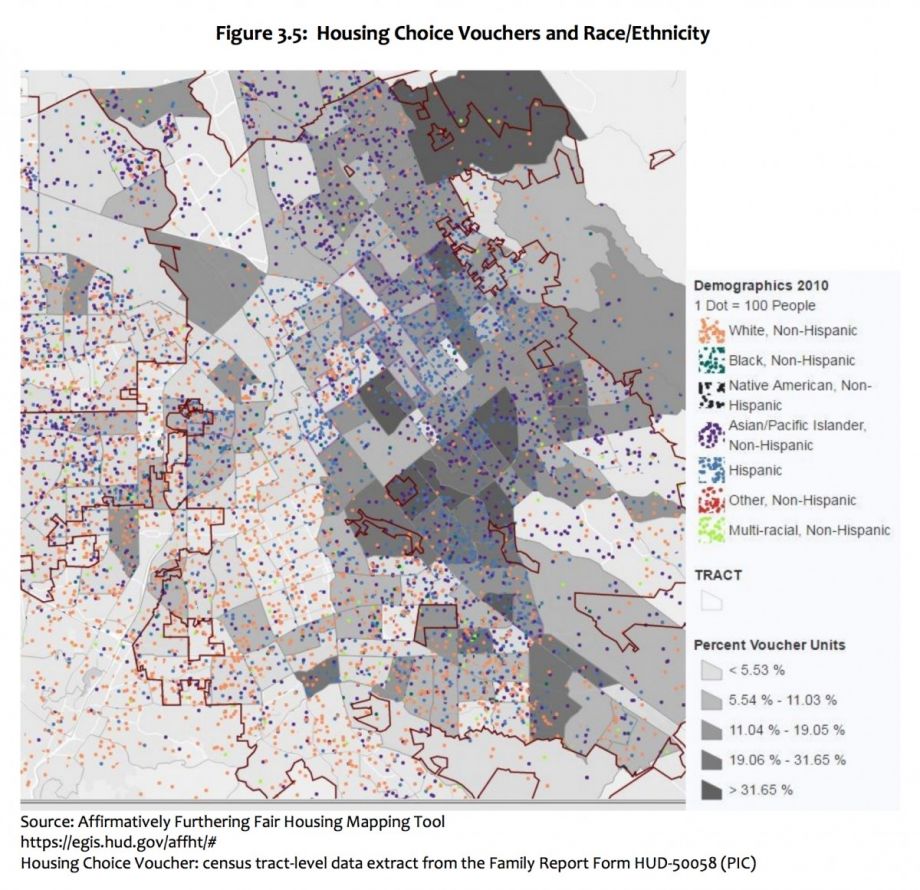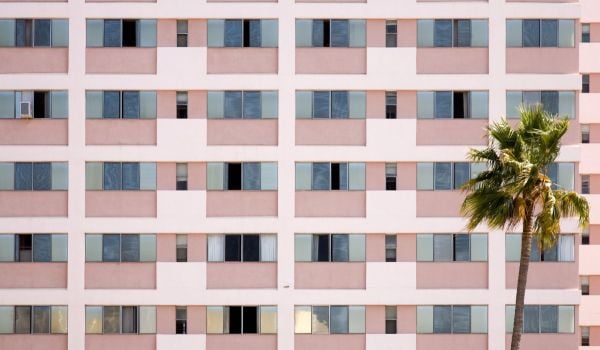The “luxury remodel” one-bedroom in Willow Glen. The “spacious” four-bedroom in San Jose South. The two-bedroom duplex downtown. They’re just a sampling of the many listings on Craigslist in San Jose, California, that specifically bar Section 8 voucher holders from applying for a lease. Federal fair housing law bans discrimination based on race, religion, national origin, family status, disability or age. But it has no stipulation about discriminating against income sources.
“It’s a huge issue,” says Mathew Reed, an organizer with Sacred Heart Community Services, a San Jose social services organization. “In runaway housing markets like ours, Section 8 voucher holders really struggle to find places to live.”
The San Jose City Council is exploring the idea of banning income source discrimination, including Section 8 discrimination. In late April, the council adopted a memorandum stating their intention to consider an ordinance banning income source discrimination and requiring the city’s housing department to analyze the problem.
As is the case throughout the Bay Area, housing costs in San Jose have skyrocketed. According to a recent Redfin report, it has the most competitive housing market in the U.S. The Mercury News reports that the rental market cooled a bit last fall, but the average rent for a one-bedroom apartment in the city was still $2,455.
“Our housing costs are so high and our vacancy rate is low. It’s below 5 percent. It means we don’t have a lot of supply,” says Housing Department Director Jacky Morales-Ferrand.
Section 8 housing choice vouchers are available to low- and very-low-income Santa Clara County residents (those earning no more than 30 and 50 percent area median income respectively). Voucher holders pay 30 percent of their income to rent. The housing authority pays the rest directly to landlords, with federal funds. The average wait time for receiving a voucher is eight to 10 years and the housing authority is no longer accepting new applicants on the waitlist.
Those who manage to get a voucher have difficulty finding a place to live within the allotted 90-day window to rent. Part of the problem is expensive housing, Morales-Ferrand says. To address that, the Housing Authority of the County of Santa Clara raised the voucher values above the U.S. HUD standard in January. But that’s only done so much to alleviate the problem.
The authority reported that in one month, 826 federal housing assistance vouchers in the county went unused, and 217 federal housing vouchers for homeless veterans went unused.
“Landlords have the choice to raise rents above rates Section 8 can pay. And they can choose not to rent to voucher holders because they know they’ll still be able to find a tenant,” says Reed.
According to a San Jose housing department report that examines impediments to fair housing through 2020, the landlords who do accept vouchers mostly have units “concentrated in low-income areas of the City, where access to opportunities, such as high-performing schools and jobs, may be limited.” The report also has a map comparing housing choice voucher rentals and race and ethnicity in San Jose. There are more vouchers in use in areas of the city with predominantly Hispanic and Asian populations.
If the city passes its anti-discrimination ordinance, landlords would no longer be able to turn away potential tenants based on their source of income and will consider vouchers a source of income.
“It won’t solve the problem,” Reed says. (After all, it’s illegal to discriminate based on race, but the practice persists. And in Chicago, where Section 8 discrimination has been illegal for more than 25 years, a 2015 investigation by WBEZ found that hasn’t stopped landlords from posting “No Section 8” with rentals ads.) “But we think it will be an important wake-up call for landlords. And hopefully they’ll take another look at the program and not opt out.”
If an ordinance passes, San Jose will join 13 states and dozens of cities and counties that have banned Section 8 discrimination. Minneapolis City Council passed an ordinance in March. Santa Clara County (the county in which San Jose sits) passed its own ordinance banning income source discrimination in February. That goes into effect in January 2018 and pertains just to landlords in unincorporated Santa Clara County, not the cities within.
In the meantime, the city housing authority has been tasked with further analyzing Section 8 discrimination. Morales-Ferrand says step one is quantifying how often people are rejected because they have vouchers.
Though he thinks landlords will still try to discriminate against Section 8 renters, Reed is optimistic that council will pass the ordinance.
If it doesn’t, he says San Jose’s affordable housing crisis will continue apace. “If you’re extremely low income in Santa Clara County and you don’t have housing assistance, you either live with family or friends or you’re on the street. There’s no way you can afford a place to live on minimum wage. Subsidized housing and voucher programs are a critical resource.”

Josh Cohen is Crosscut’s city reporter covering Seattle government, politics and the issues that shape life in the city.
Follow Josh .(JavaScript must be enabled to view this email address)

















